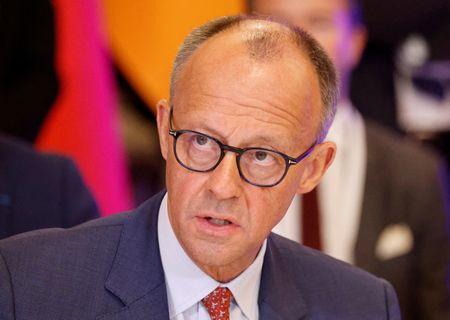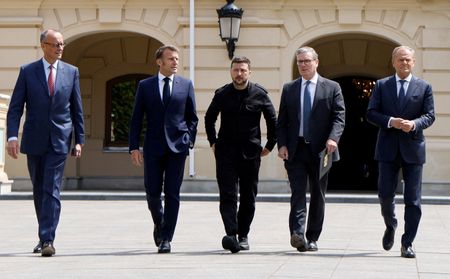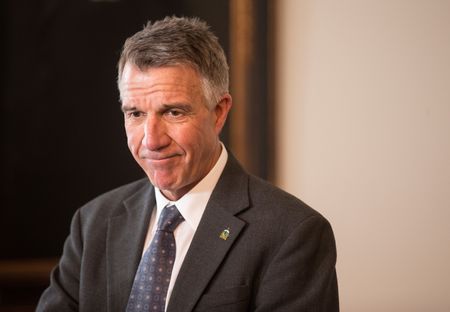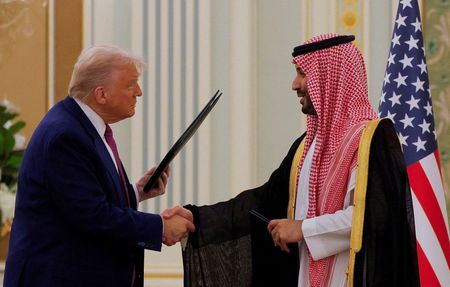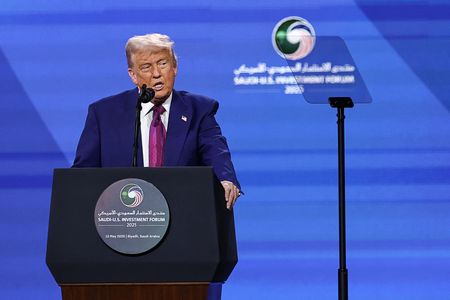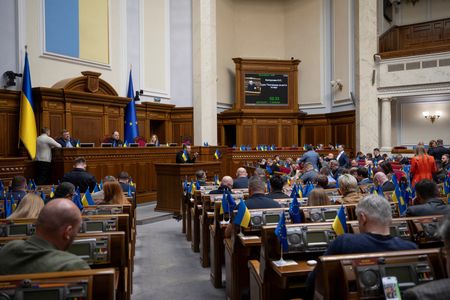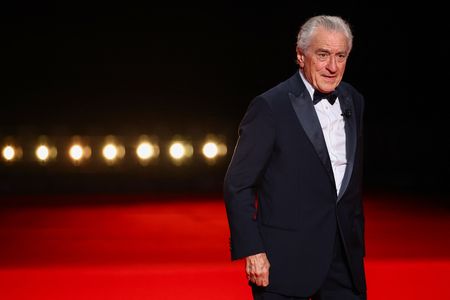By John Irish, Lili Bayer and Julia Payne
BRUSSELS/PARIS (Reuters) – “Massive” sanctions European leaders threatened to impose on Russia if Vladimir Putin does not agree to a ceasefire in Ukraine face formidable political obstacles and would need U.S. support to succeed, officials and diplomats said.
The leaders of Britain, France, Germany and Poland declared in Kyiv on Saturday that Russia would be hit by new punitive measures if it did not heed calls for a 30-day ceasefire within days.
That pledge failed to move Putin, who instead called for direct talks with Ukraine in Istanbul on May 15. U.S. President Donald Trump backed that call, undermining the European leaders’ efforts to show Trump was firmly on board with their threat.
German Chancellor Friedrich Merz, however, repeated the leaders’ threat on Tuesday, saying that “if there is no real progress this week, we want to work together at European level for a significant tightening of sanctions”.
He said Europe would aim to target sectors including energy and financial markets. French Foreign Minister Jean-Noel Barrot said on Monday the European Commission had been asked to propose new sanctions in those areas.
Diplomats say, however, that after 16 sanction packages imposed on Russia by the EU over the war in Ukraine it is increasingly difficult to get the necessary unanimity among the bloc’s 27 members to pass major new measures.
Hungary, which maintains close ties with Russia, has often blocked or sought to water down major new sanctions on Moscow.
Diplomats say only pressure from Trump’s administration might make Budapest change tack, but there has been no sign of that so far.
Some European officials say they are coordinating with Washington on possible further sanctions. But it is not yet clear whether Trump is willing to join forces with the Europeans.
SANCTIONS PACKAGE
EU envoys are set to agree on a 17th package of sanctions on Wednesday that primarily hits Russia’s shadow fleet in combination with separate measures on chemical weapons, human rights and Russian hybrid threats.
Those are easier to pass as the bloc runs out of major targets. Attempts to hit Russia’s gas and nuclear sectors, for example, have consistently hit the buffers.
Some officials have resurrected ideas, such as lowering a $60 price cap on Russian oil, agreed by the Group of Seven nations. That would require Washington’s support, though, and there has been no change in the last two years despite the group’s pledge to periodically review the level.
Diplomats said the leaders’ bold words risked undermining the EU’s credibility if they could not follow up with action.
“You keep them (sanctions) on the table as a possible pressure lever, but putting down an ultimatum when you can’t really do it is not serious,” one said.
“There’s no appetite at all at European level for this sort of sanctions. It’s hard enough to just get a basic package.”
A senior European official said: “The danger here, obviously, is that the Russians might see this as a bluff.”
(Reporting by John Irish in Paris; Lili Bayer, Julia Payne and Jan Strupczewski in Brussels; Editing by Tomasz Janowski)

